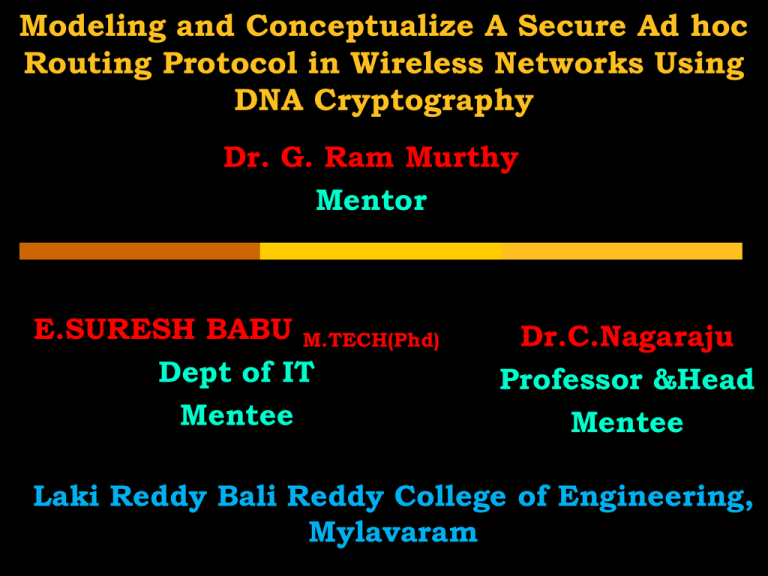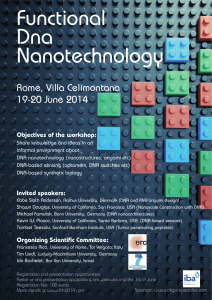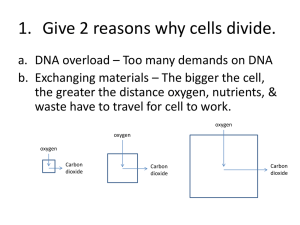PPT - EnhanceEdu
advertisement

Modeling and Conceptualize A Secure Ad hoc Routing Protocol in Wireless Networks Using DNA Cryptography Dr. G. Ram Murthy Mentor E.SURESH BABU M.TECH(Phd) Dept of IT Mentee Dr.C.Nagaraju Professor &Head Mentee Laki Reddy Bali Reddy College of Engineering, Mylavaram Introduction Recent Advances in Mobile Technology and Mobile Devices Mobile Computing has become an important part of our life. People are using wireless networks for their day-to-day work The desire to be connected anytime, anywhere, anyhow has led to the development of wireless networks 2 Statement of the Problem In this Proposed work, Focus has been put on the strategy to address the security issue A lot of emphasis has been given on the routing mechanism and Security Area has not been addressed adequately in Existing Research 3 Statement of the Problem The Main Objective of the Proposed Work can be stated as – “Modeling and Conceptualize a secure routing protocol for MANETs”. In order to handle the above problem, the following outline is proposed Evaluation and Analysis of existing ad hoc routing protocols Design and development of the proposed routing protocol 4 Statement of the Problem The New Protocol will be proposed after proper verification and validation through simulations 5 Protocol Classes Proactive Reactive Ready to go On-demand Whole topology Little maintenance Updates changes Cell operations Overhead Costs Bandwidth Battery power Inflexible 6 Proposed Work In our Protocols study have the a On-demand lower (Reactive) communication overhead because the roots are built only when required and there are no periodic updates required. We consider a Routing Protocol, namely, Ad hoc On-Demand Distance Vector (AODV). The AODV is an on-demand routing protocol based on the concept of reactive routing 7 AODV Improving the Ad-hoc On-demand Distance Vector Charles E. Perkins, 1999 Reactive protocol Fast discovery Loop free On-demand 8 Security Mechanisms 9 Security Mechanisms A pseudo DNA (Deoxyribo Nucleic Acid) based cryptographic algorithm is used in order to secure the MANETs. The pseudo DNA cryptography is a concept inspired from the field of life science and has been extended to the field of MANETs to secure them. 10 Introduction Encoding data “as in nature Input Recombination algorithm Output Molecular AI: DNA Computing 11 DNA Computing 011001101010001 ATGCTCGAAGCT 12 DNA Computing DNA (Deoxyribonucleic acid) DNA Genetic information “memory” Nucleotides strung into polymer chains (DNA Strands) Four classes of nucleotides: Adenine, Guanine, Cytosine, Thymine (A,C,G,T) 13 DNA Computing The Structure of DNA • The double helix structure discovered by Watson and Crick 14 HPP 4 3 Encoding 1 0 6 2 5 ... ... ... TAAACG Ligation TGC ... ATG ... CGA ACG GCA TAA ... CGT ... ...... ... ... ... ... ... ... ATGTGCTAACGAACG ACGCGAGCATAAATGTGCACGCGT ... ... ... ... TAAACGGCAACG ACGCGAGCATAAATGTGCCGT ACGCGAGCATAAATGCGATGCACGCGT ... CGACGTAGCCGT ... ... CGACGT ... ... ACGCGAGCATAAATGTGCCGT ACGGCATAAATGTGCACGCGT ACGCGAGCATAAATGCGATGCCGT Gel Solution 3 4 0 2 5 Affinity Column 1 Decoding 6 Electrophoresis ... ... ACGCGTAGCCGT ACGCGAGCATAAATGTGCCGT ... ACGCGAGCATAAATGTGCCGT ... PCR (Polymerase Chain Reaction) ... ... ACGCGAGCATAAATGTGCACGCGT ... ... ACGCGT ... 15 ACGCGAGCATAAATGCGATGCACGCGT ... 15 The Central Dogma of molecular biology 16 Pseudo DNA cryptography 17 Security Mechanisms In proposed work, one potential key application will be used known as DNAbased molecular cryptography systems. it provides a much more compact storage medium, and An extremely small amount of DNA suffices even for huge one-time pads. 18 Conclusion Finally,the New Routing Protocol will be validated through various simulation scenarios, 19 Thank U 20






